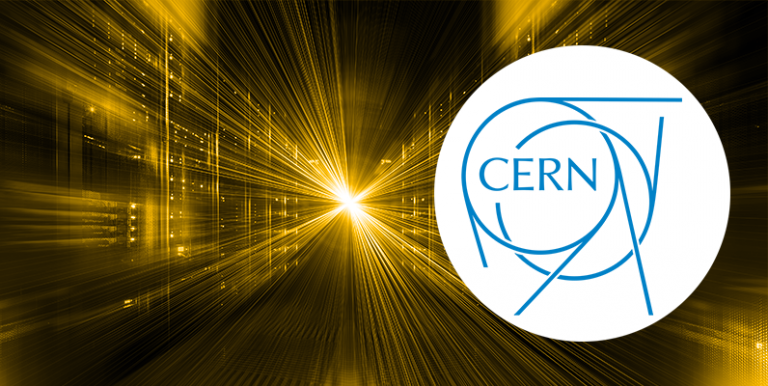From Supercomputing to Quantum Computing: Perspectives from UCL and CERN
07 November 2019, 5:30 pm–9:00 pm

Speakers from UCL and CERN will lead the audience through an exploration of High-Performance Computing and explore if we should be swapping our Supercomputer for a Quantum computer.
This event is free.
Event Information
Open to
- All
Availability
- Yes
Cost
- Free
Organiser
-
Ryan Grammenos – Institute of Communications and Connected Systems
Location
-
Sir Ambrose Fleming Lecture TheatreRoberts BuildingMallet PlaceLondonWC1E 7JEUnited Kingdom
Delve into the current state-of-the-art and explore the future of High-Performance Computing. This evening event hosted by the UCL Institute of Communications and Connected Systems will explore supercomputing with a perspective from CERN, along with looking into the future, at the potential capabilities and applications of Quantum computing.
Speakers will be Dr Niko Neufeld, Deputy Project Leader CERN and head of IT infrastructure for the LHCb experiment, and Professor John Morton, Professor of Nanoelectronics and Nanophotonics, and director of the UCL Quantum Science and Technology Institute.
The talks will be followed by a moderated panel with questions open to the floor.
All are welcome to join this event which will be followed by a reception for attendees meet and continue the discussion.
| Time | Details |
|---|---|
| 17:30 | Registration |
| 18:00 | WelcomeICCS & CERN Alumni |
| 18:10 | TalksSupercomputing at CERN’s LHC Is it time to swap your supercomputer for a quantum processor? Panel discussion |
| 20:00 | Networking reception |
| 21:00 | Close |
About the Speakers
Niko Neufeld
Deputy Project Leader at CERN
Niko Neufeld was born and studied in Austria. He holds a degree in engineering physics from the University of Technology in Vienna Austria and a PhD in particle physics. Since 2000 he has been working in the field of high-speed data acquisition and embedded processing. He has co-designed the data acquisition system of the LHCb experiment, a facility to study the minute differences between matter and anti-matter sifting through almost 70 Gigabytes of data / second. He is now in charge of the upgrade of the LHCb DAQ, which will increase the data-rate to more than 4 Terabyte of data / second. Mr. Neufeld has published on numerous topics of high-speed networking, physics data-processing and embedded systems. He is a senior staff scientist in the physics department at CERN.
John Morton
Professor of Nanoelectronics and Nanophotonics at UCL
John Morton is Professor of Nanoelectronics & Nanophotonics at UCL, and Director of the UCL Quantum Science and Technology Institute (UCLQ) which includes over 120 researchers and 30 research groups. John’s research involves the control and measurement of electron and nuclear spins in solid-state materials and devices, with a focus on quantum technologies and semiconductor-based approaches. His group is responsible for several key breakthroughs in the development of quantum computing based on spins. John was a Royal Society University Research Fellowship from 2008-16, and he has held back-to-back ERC grants (Starter and Consolidator). His awards include the Nicholas Kurti European Science prize (2008), the Institute of Physics Moseley Medal (2013) in experimental physics, and the Sackler International Prize in Physical Sciences (2016). John has published over 100 papers with 8500 citations and has an h-index of 40. He has co-founded three companies in the field of quantum technology, covering quantum computing hardware, software and applications. John has been active in the public engagement of science, including public exhibitions, documentaries, radio broadcasts and popular articles on quantum science and technology.
Laura Bovo
Innovation Networks Manager at UCL
Laura will be moderating the panel discussion, and chairing questions.
Laura works within the UCL Innovation and Enterprise team to facilitate, enable and support academics and researchers across disciplines to interact with groups of businesses and other stakeholders. Laura's work aims to build innovation networks and industry clubs, that can allow participants to build communities of practice.
Laura is a chemist by training, with almost a decade’s experience of academic research, most recently working as a researcher at the London Centre for Nanotechnology at UCL from 2011 to 2018. Laura is a member of the Institute of Physics and of the Royal Society of Chemistry, and sits on group committees for both institutions
 Close
Close

